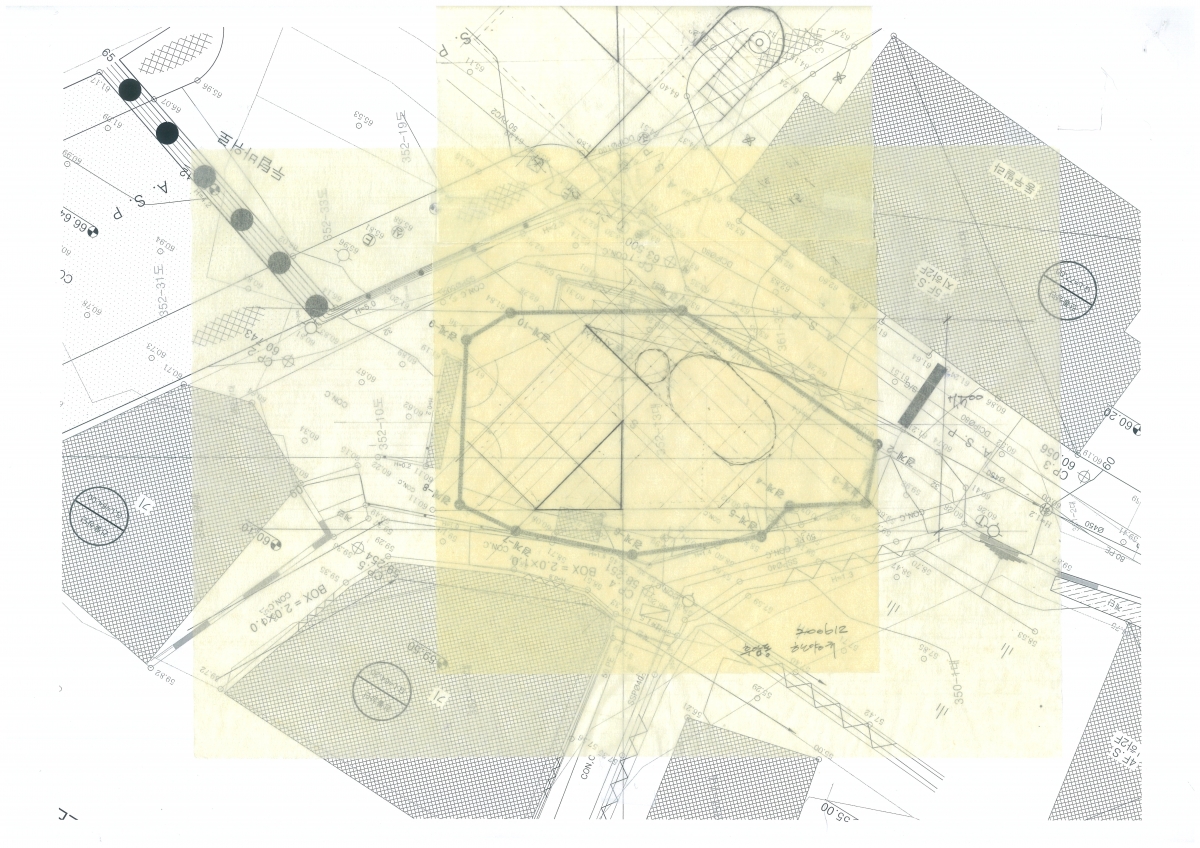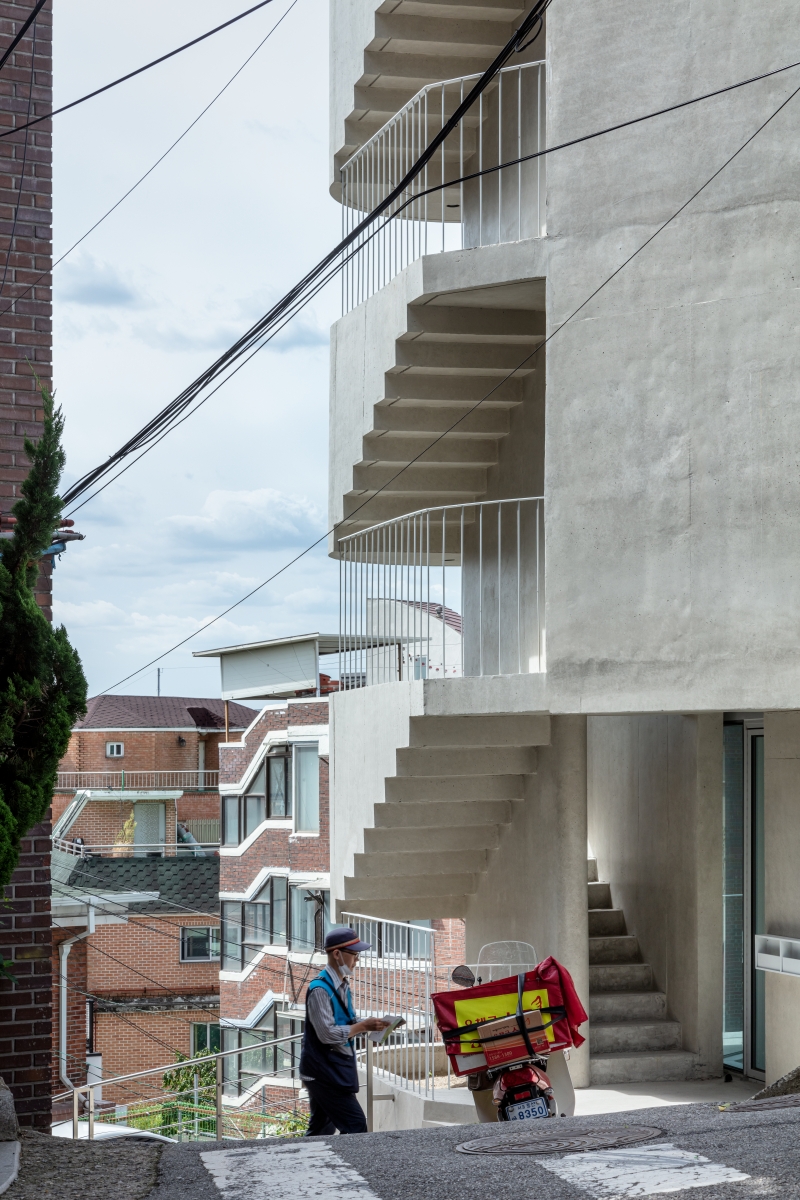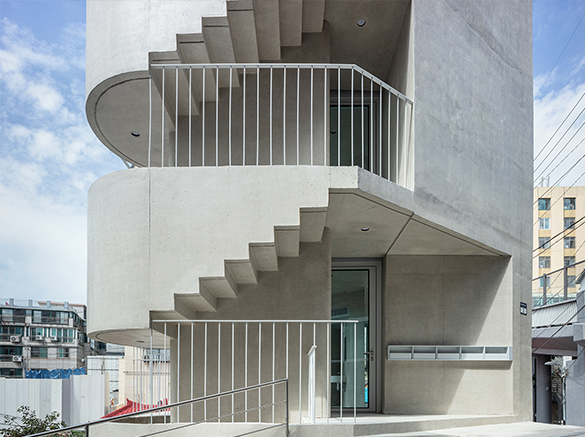PROLOGUE: Can Architecture Save the World?

Sketch of Memories of Huam-dong by Han Yangkyu
In the year 2004, The Coffee Bean & Tea Leaf, in front of Hongik University, was a sacred place for hipsters of the time. Friends who liked to show-off the fact that they studied architecture would carry around philosophical books that were difficult to fly through, such as Sigfried Giedion’s Space, Time, and Architecture, or Mille Plateaux by Gilles Deleuze and Felix Guattari. They would sit on the terrace of The Coffee Bean & Tea Leaf, sipping an espresso that they do not know to enjoy, hoping that someone would notice them reading such challenging texts. Some more extreme architecture students went even further and didn’t hold back from debating in loud voices in places where there were other people, thinking that this was the true swag of being an ‘archie’. It is upsetting to think back on this now, but I was one of them.
‘Le Corbusier said that architecture should be a machine for living!’
‘That is wrong! Think about Mies van der Rohe’s notion “Less is more!” Contemporary architecture is a snobby machine!’
‘Ha, you are both wrong. As Deleuze said, a nomad asks for an independent race, instead of requiring a universal thinking agent.’
‘……’
These flash debates between twenty one to twenty two year-olds (whose study periods were short) usually began with the question of ‘What is architecture?’ and would end with someone quoting Deleuze, after a coarse argument of contextless quotes. This was simply because no one would dare refute Deleuze. No one was willing to betray their limited knowledge by confronting Deleuze. The arguments were shallow battles of ‘who has read one more sentence.’ To confess once again, these childish fights that are not that different from the Pokémon Trading Card Game that filled my twenties. In retrospect, those times are part of a painful private history that makes me want to die of embarrassment, so it would be much appreciated if one could avoid bringing up Deleuze, even as a joke. Then one day, I heard a story about a certain book from an art college friend whose nickname was stockings because she liked to wear flashy stockings. To be exact, it was a book by a certain Japanese author but was unreadable as it was not yet translated. It was therefore a book with only a plot, or of such a book—it was said to be a novel that was written in a fit of rage by a novelist and musician arguing over whether music can save the world whilst they were drinking.
For some reason I liked the story. There was a hint of romance in a story about music saving the world, and of a background that started with some boozy talk in a Japanese tavern. Recalling the adage that Eric Clapton often recounted when he was young that his acoustic guitar was the only weapon against the world, I imagined a scene with an apostle of justice playing the blues with an old acoustic guitar after saving the world. It was then that I thought it really may only be music that can save the world. ‘We are all wrong. Architecture? Guys, it is all so tedious now. Pity, but only music can save the world. So why don’t we play in a band together?’My twenties started and ended with bluffing. In this way, architecture became a tool just for my gratification and, fortunately, there was a halt to that embarrassing practice of debate.
Apostle of Justice
But then Yangkyu messed everything up. Calling himself an apostle of justice, he declared that he would save the world through architecture. For the longest time, I did not understand his architecture. It was as if he did not seem to know his own architecture. It seems only natural that Yangkyu does not know his architecture, as an architect who knows his own architecture well must be a shallow person directed solely by a clear purpose in the first place. I should probably apologise to Yangkyu for yelling at him in the past, demanding why he himself did not understand his architecture. Sorry. Now I understand as I write this essay.
Going back, it is true that Yangkyu messed everything up. Architecture for me was not a subject for argument nor a fight but a lifelong friend (I admit that I have used it as a tool to achieve. I also apologise for my doing so). At some point, I suddenly realised that for Yangkyu, architecture is a ‘structure that supports the world’. Most of his sketches were of tasteless and dull, straight lines. Yet I kept thinking ‘why is this so cool’ and did a quick interview to pry whether architecture for him was different for me. I found out that it was. What follows is the full interview I conducted with Yangkyu:
Hanjin: Yangkyu, why are you always crying?
Yangkyu: I can even cry now. (He shows me his eyes starting to tear up.) This isn’t because I am sad. For me, everything is just movin’ my heart.
Hanjin: Wow! Amazing! Then when can’t you stop yourself from crying?
Yangkyu: Poverty, war, affairs, and fraud.
Hanjin: It must be a love of humanity (it pronounced in-ryu-ae in Korean).
Yangkyu: What is that? (Sex education instructor) Koo Sungae’s sister?
Hanjin: Forget about it. Do you believe that architecture can save the world?
Yangkyu: Shouldn’t we at least try?
Hanjin: Oh wow!! This is nuts!!!
Yes. Architecture that does not save humanity is nothing more than a mere building in Yangkyu’s world. Ironically, Yangkyu’s architecture does not smell of people. Atmospheric considerations are outside of his interests. Architecture should be upright and honest because it should be a structure that saves mankind from poverty, war, fraud, and adultery. Architecture can stand up properly only when it is devoid of emotions. This is Yangkyu’s architecture, and it is his basic attitude to saving the world. Of course, I still believe that he is ignorant as to why his architecture is like that. He still does not know why he does not care even when his friends tease him that architecture is like a refrigerator or a pyramid.
This is phenomenal for other apostles of justice, such as in the case of Flashman of the Earth Defence Force, or the Power Rangers. They don’t ask themselves why they are duty bound to protect the earth while being beaten on behalf of silly humans. It’s a reflex to fight when a villain appears. Therefore, the apostles of justice can never win over villains. They are just a little bit better at fighting than the villains! This is the reason why evil is never forever gone from this earth. It is also the reason why Yangkyu’s architecture can never prevail. He cannot win, so every time he despairs and sheds tears. In the first place, I believe that the joy of architecture is somewhere other than victory, so it is true that I feel sorry for Yangkyu when I see him like this. But at the same time, I find Yangkyu to be wonderful in his fight against the world. The reason why we want to take a closer look at Yangkyu’s architecture through this rare opportunity is because we wanted to show the architecture of justice that reveals the joy of victory and desperation of defeat, without the distraction of the trivial thoughts of Seungjae or I. Writing this prologue, I have come to the conclusion that the balance of FHHH FRIENDS will be broken if Yangkyu joins hands with capitalism and begins to design callous buildings. Therefore, I formally request that everyone reading this to be careful not to provoke Yangkyu into asking himself the question of why he should continue to be an apostle of justice. At least until the day Yangkyu saves the world with architecture!

You can see more information on the SPACE No. 668 (July 2023).







